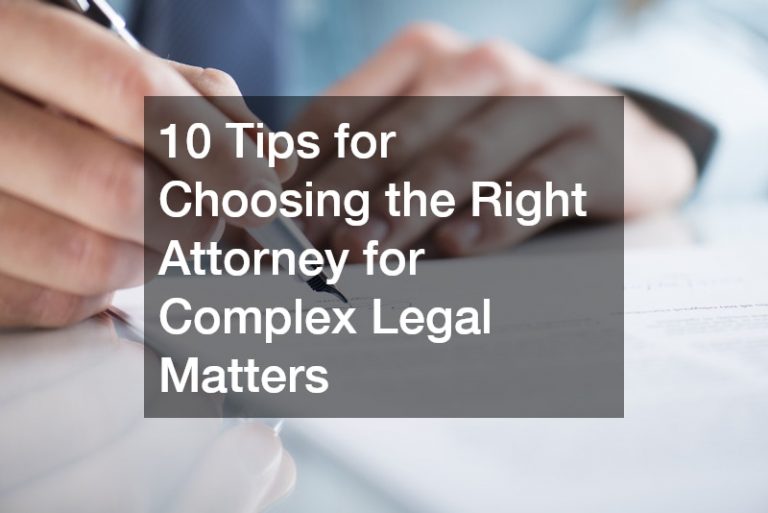People may dream of starting their own business because it can be a very lucrative endeavor. In fact, according to the U.S. Small Business Administration, small businesses account for 99.7% of all employers in the United States. Additionally, small businesses create 64% of all new jobs in the country. These statistics demonstrate that starting a small business is a great way to achieve the American Dream.
However, before starting a small business, it is crucial to understand the various legal issues accompanying owning your own company. If any legal issues do not get handled correctly, it could result in the business getting shut down. Additionally, failing to comply with specific laws can result in hefty fines.
Every small business owner should keep a few critical legal matters in mind. Here are a few things to consider to ensure you stay legally safe for your business.
Corporate Structure
The first thing to keep in mind is the corporate structure of the business. The three most common business structures are sole proprietorships, partnerships, and corporations. Choosing the right one for your business is critical because it will determine the amount of liability you have as the owner. For example, if you own a sole proprietorship and the company incurs debt, you are personally liable for that debt.
Sole proprietorships are businesses owned by a single individual with no legal distinction between the owner and the business. This step is the simplest form of business ownership and can be easy to set up. However, as previously mentioned, there is no legal distinction between the sole proprietor and the business. The owner is personally liable if the business incurs debt or gets sued.
Partnerships are businesses owned by two or more people. There are two types of partnerships: general partnerships and limited partnerships.
All partners are equally liable for a general partnership’s business debts and obligations. Limited partnerships have both general partners and limited partners. The general partners have unlimited liability, while the limited partners only have liability up to their investment in the business.
Corporations are businesses that have been legally established as separate entities from their owners. This means the company can incur debt and be sued without the owners being held personally liable. However, there are different types of corporations, which will determine the amount of liability the owners have. The three types of corporations are C-corporations, S-corporations, and limited liability companies (LLCs).
Creating the business structure will be a complex legal system, but it is necessary. Fortunately, you can hire a legal team to help you sort it out.
Intellectual Property Law

Intellectual property law is the area of law that deals with legal protections for inventions, designs, and creative works. This step can include trademarks, copyrights, and patents.
Trademarks are symbols or words that represent a company or product. They help consumers identify the source of goods and services. You must apply with the U.S. Patent and Trademark Office (USPTO) to obtain a trademark. The USPTO will review the application to make sure it meets all the requirements. You might need an intellectual property lawyer to help you sort it out.
Copyrights are protections for original works of authorship, such as books, movies, songs, and artwork. You must register your work with the U.S Copyright Office to obtain a copyright. Unlike trademarks, copyrights do not have to get filed with the USPTO.
Patents protect inventions, such as machines, processes, and chemical compositions. To obtain a patent, you must apply with the USPTO. The USPTO will review the application to make sure it meets all the requirements.
Hiring Employees
If you plan on hiring employees, here are a few things to keep in mind from a legal standpoint. First, you will need to obtain workers’ compensation insurance. This type of insurance benefits employees who are injured or become ill due to their job. Workers’ compensation laws vary from state to state, so it is essential to check the requirements in your state.
Second, you must comply with the Fair Labor Standards Act (FLSA). The FLSA establishes minimum wage, child labor standards, recordkeeping, and overtime pay.
Third, you will need to have an employment agreement in place. This agreement is between the employer and employee and outlines the terms of employment. It can include job duties, salary, benefits, and termination procedures. It is essential to have a lawyer review the agreement before signing it.
Fourth, you will need to comply with anti-discrimination laws. These laws prohibit employers from discriminating against employees based on race, color, religion, or sex, among other things.
There are other legal considerations when hiring employees, so it is best to consult a lawyer to ensure you comply with all the laws.
Final Thoughts
There are many legal aspects to starting a business. This article only covers some of the basics. It is essential to consult with a lawyer to make sure you comply with all the laws. It might be helpful to consult with a business lawyer, even if you are not starting a business. They can help you understand the legal process and take the necessary steps to protect your interests.







